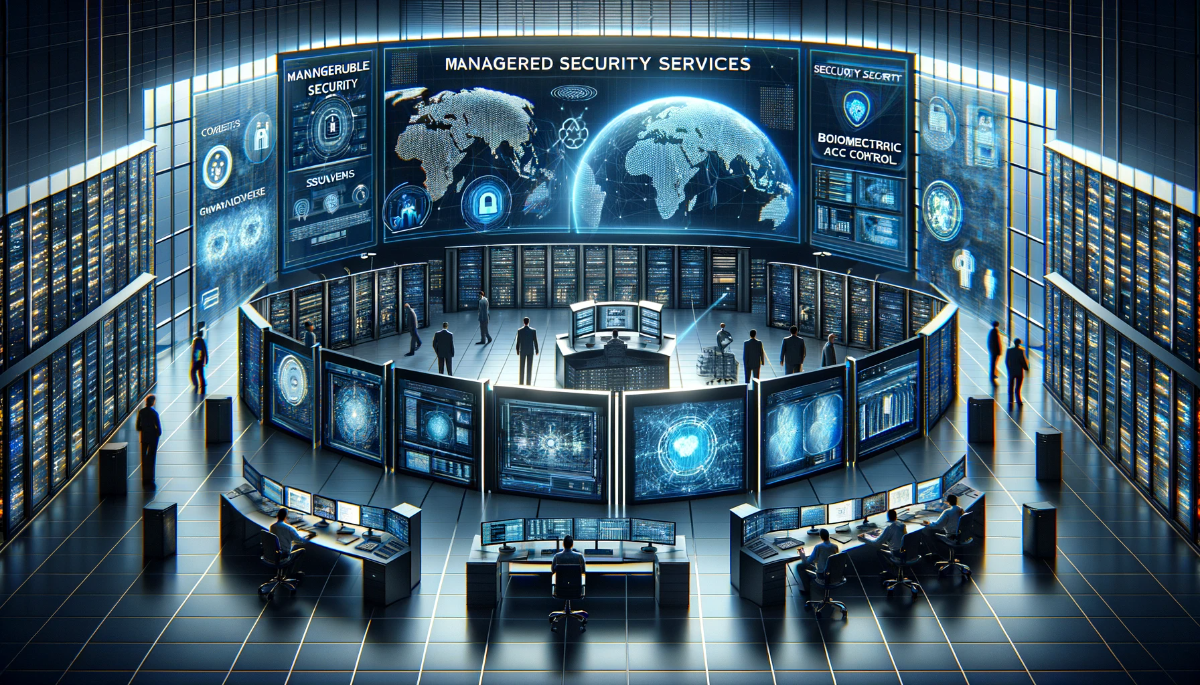In today’s digital age, data center connectivity services play a crucial role in ensuring the smooth and uninterrupted operation of businesses. These services refer to the network connections that link data centers to other locations, such as branch offices, cloud providers, and internet service providers. They enable the transfer of data and information between these locations, allowing businesses to access their critical applications and resources.
Data center connectivity services are essential for businesses of all sizes and industries. They provide the foundation for communication, collaboration, and data sharing within an organization. Without reliable connectivity, businesses would struggle to access their data, communicate with their customers and partners, and carry out their day-to-day operations.
Key Takeaways
- Data center connectivity services are essential for businesses to connect to the internet and other networks.
- Redundancy and reliability are crucial factors in data center connectivity services to ensure uninterrupted connectivity.
- Types of data center connectivity services include internet connectivity, private connectivity, and cloud connectivity.
- Redundancy plays a significant role in data center connectivity by providing backup connections in case of failures.
- Reliable data center connectivity offers benefits such as improved productivity, reduced downtime, and enhanced security.
Understanding the Importance of Redundancy and Reliability
Redundancy and reliability are two key factors in data center connectivity services. Redundancy refers to the duplication of critical components or systems to ensure that there is a backup in case of failure. This redundancy can be applied at various levels, including network connections, power supplies, and cooling systems.
Reliability, on the other hand, refers to the ability of a system or service to consistently perform its intended function without interruption or failure. In the context of data center connectivity services, reliability is crucial because any downtime or disruption can have severe consequences for businesses.
Redundancy and reliability are essential in ensuring uninterrupted business operations. In today’s highly connected world, businesses rely heavily on their data centers to store and process critical information. Any disruption in connectivity can result in lost productivity, missed opportunities, and damage to a company’s reputation.
Types of Data Center Connectivity Services
There are several types of data center connectivity services available, each with its own advantages and use cases. One common type is Multiprotocol Label Switching (MPLS), which provides a private network connection between different locations. MPLS offers high performance, low latency, and enhanced security, making it ideal for businesses that require reliable and secure connectivity.
Another type of data center connectivity service is Virtual Private Network (VPN), which allows users to securely access their data and resources over the internet. VPNs are commonly used by remote workers and branch offices to connect to the main data center. They provide encryption and authentication to ensure the privacy and security of data.
Direct Connect is another popular data center connectivity service that enables businesses to establish a dedicated network connection between their data center and a cloud provider, such as Amazon Web Services (AWS) or Microsoft Azure. This direct connection offers higher bandwidth, lower latency, and improved security compared to accessing the cloud over the public internet.
The Role of Redundancy in Data Center Connectivity
Redundancy plays a crucial role in ensuring the reliability and availability of data center connectivity services. By implementing redundant components and systems, businesses can minimize the risk of downtime and ensure uninterrupted access to their critical applications and resources.
In the context of data center connectivity, redundancy can be applied at various levels. For example, businesses can have multiple network connections from different service providers to ensure that there is always a backup in case one connection fails. Redundant power supplies and cooling systems can also be implemented to prevent disruptions caused by power outages or equipment failures.
Redundancy is essential because it provides a failover mechanism that allows businesses to quickly switch to a backup system or component in case of failure. This ensures that there is minimal disruption to business operations and that critical applications and resources remain accessible.
The Benefits of Reliable Data Center Connectivity
Reliable data center connectivity services offer several benefits for businesses. Firstly, they increase productivity by ensuring that employees have uninterrupted access to their applications and resources. This allows them to work efficiently and collaborate effectively with their colleagues.
Reliable connectivity also improves customer satisfaction by enabling businesses to provide fast and responsive services. Whether it’s an e-commerce website, a customer support portal, or a cloud-based application, customers expect a seamless experience. Any downtime or disruption can result in lost sales, frustrated customers, and damage to a company’s reputation.
Furthermore, reliable data center connectivity services reduce downtime and the associated costs. Downtime can be costly for businesses, both in terms of lost revenue and the resources required to resolve the issue. By investing in reliable connectivity, businesses can minimize the risk of downtime and ensure that their operations run smoothly.
Factors Affecting Data Center Connectivity
Several factors can affect the reliability and performance of data center connectivity services. One common factor is network congestion, which occurs when there is a high volume of traffic on a network. This can result in slower speeds, increased latency, and reduced overall performance.
Hardware failure is another factor that can impact data center connectivity. If a critical component, such as a router or switch, fails, it can disrupt the entire network and result in downtime. Regular maintenance and monitoring are essential to identify and address any potential hardware issues before they cause significant disruptions.
Natural disasters are also a significant concern for data center connectivity. Events such as earthquakes, hurricanes, and floods can damage infrastructure and disrupt connectivity. Businesses should have contingency plans in place to ensure that their operations can continue even in the face of natural disasters.
How to Ensure Redundancy and Reliability in Data Center Connectivity Services
To ensure redundancy and reliability in data center connectivity services, businesses can follow several best practices. Firstly, it is crucial to choose a reliable provider that offers robust infrastructure and has a proven track record of uptime. Businesses should thoroughly research potential providers and consider factors such as their network architecture, redundancy measures, and service level agreements.
Implementing backup solutions is another important step in ensuring redundancy and reliability. This can include having multiple network connections from different service providers, implementing redundant power supplies and cooling systems, and having backup servers or data centers in different locations.
Regular maintenance and monitoring are also essential to identify and address any potential issues before they cause significant disruptions. This can include conducting regular network audits, performing firmware updates, and monitoring network performance and traffic patterns.
Best Practices for Data Center Connectivity Services
In addition to ensuring redundancy and reliability, there are several best practices that businesses should follow when it comes to data center connectivity services. Firstly, monitoring network performance is crucial to identify any potential issues and ensure optimal performance. Businesses should regularly monitor network traffic, latency, and packet loss to identify any bottlenecks or performance issues.
Implementing security measures is another important best practice. Data center connectivity services can be vulnerable to cyber threats, so businesses should implement firewalls, intrusion detection systems, and encryption to protect their data and resources.
Regular audits are also essential to ensure that data center connectivity services are operating at peak performance. Businesses should conduct regular audits of their network infrastructure, security measures, and backup solutions to identify any areas for improvement or potential vulnerabilities.
Choosing the Right Data Center Connectivity Provider
Choosing the right data center connectivity provider is crucial for ensuring the reliability and performance of data center connectivity services. When selecting a provider, businesses should consider factors such as reliability, scalability, and cost-effectiveness.
Reliability is perhaps the most critical factor to consider. Businesses should choose a provider that offers robust infrastructure, redundant network connections, and a proven track record of uptime. It is also important to consider the provider’s service level agreements (SLAs) and their ability to quickly resolve any issues that may arise.
Scalability is another important consideration. As businesses grow and their connectivity needs increase, they need a provider that can scale their services accordingly. This includes the ability to add more network connections, increase bandwidth, and accommodate additional locations or users.
Cost-effectiveness is also a factor that businesses should consider when choosing a data center connectivity provider. While it is important to invest in reliable and high-performance connectivity, businesses should also ensure that they are getting value for their money. Comparing prices and services from different providers can help businesses find the right balance between cost and performance.
The Future of Data Center Connectivity Services
The future of data center connectivity services is likely to be shaped by emerging technologies such as 5G and edge computing. 5G networks offer faster speeds, lower latency, and higher capacity compared to current 4G networks. This will enable businesses to access their data and resources more quickly and efficiently, regardless of their location.
Edge computing, on the other hand, involves processing data closer to the source rather than sending it to a centralized data center. This reduces latency and improves performance, making it ideal for applications that require real-time processing, such as autonomous vehicles or industrial automation.
As businesses continue to rely on data center connectivity services for their day-to-day operations, the demand for reliable and high-performance connectivity will only increase. By understanding the importance of redundancy and reliability, implementing best practices, and choosing the right provider, businesses can ensure that their data center connectivity services meet their needs now and in the future.
If you’re interested in learning more about data center security and how to protect against cyber attacks, check out this informative article: The Importance of Data Center Security and How to Protect Against Cyber Attacks. It provides valuable insights into the measures you can take to safeguard your data center and prevent unauthorized access. With the increasing frequency and sophistication of cyber threats, ensuring the security of your data center is paramount. This article offers practical tips and best practices to help you stay one step ahead of potential attacks.
FAQs
What are data center connectivity services?
Data center connectivity services refer to the various methods and technologies used to connect data centers to the internet and other networks.
What is redundancy in data center connectivity services?
Redundancy in data center connectivity services refers to the use of multiple connections or paths to ensure that data can still be transmitted even if one connection or path fails.
Why is redundancy important in data center connectivity services?
Redundancy is important in data center connectivity services because it helps to ensure that data can still be transmitted even if there is a failure in one of the connections or paths. This helps to minimize downtime and ensure that data is always available.
What is reliability in data center connectivity services?
Reliability in data center connectivity services refers to the ability of the connections and paths to consistently transmit data without interruption or failure.
Why is reliability important in data center connectivity services?
Reliability is important in data center connectivity services because it helps to ensure that data is always available and that there is minimal downtime. This is especially important for businesses and organizations that rely on their data centers for critical operations.
What are some common methods used to achieve redundancy in data center connectivity services?
Some common methods used to achieve redundancy in data center connectivity services include using multiple internet service providers, using multiple routers or switches, and using multiple physical connections.
What are some common methods used to achieve reliability in data center connectivity services?
Some common methods used to achieve reliability in data center connectivity services include using high-quality equipment, regularly monitoring and maintaining the connections and paths, and implementing failover mechanisms to quickly switch to backup connections or paths in the event of a failure.





